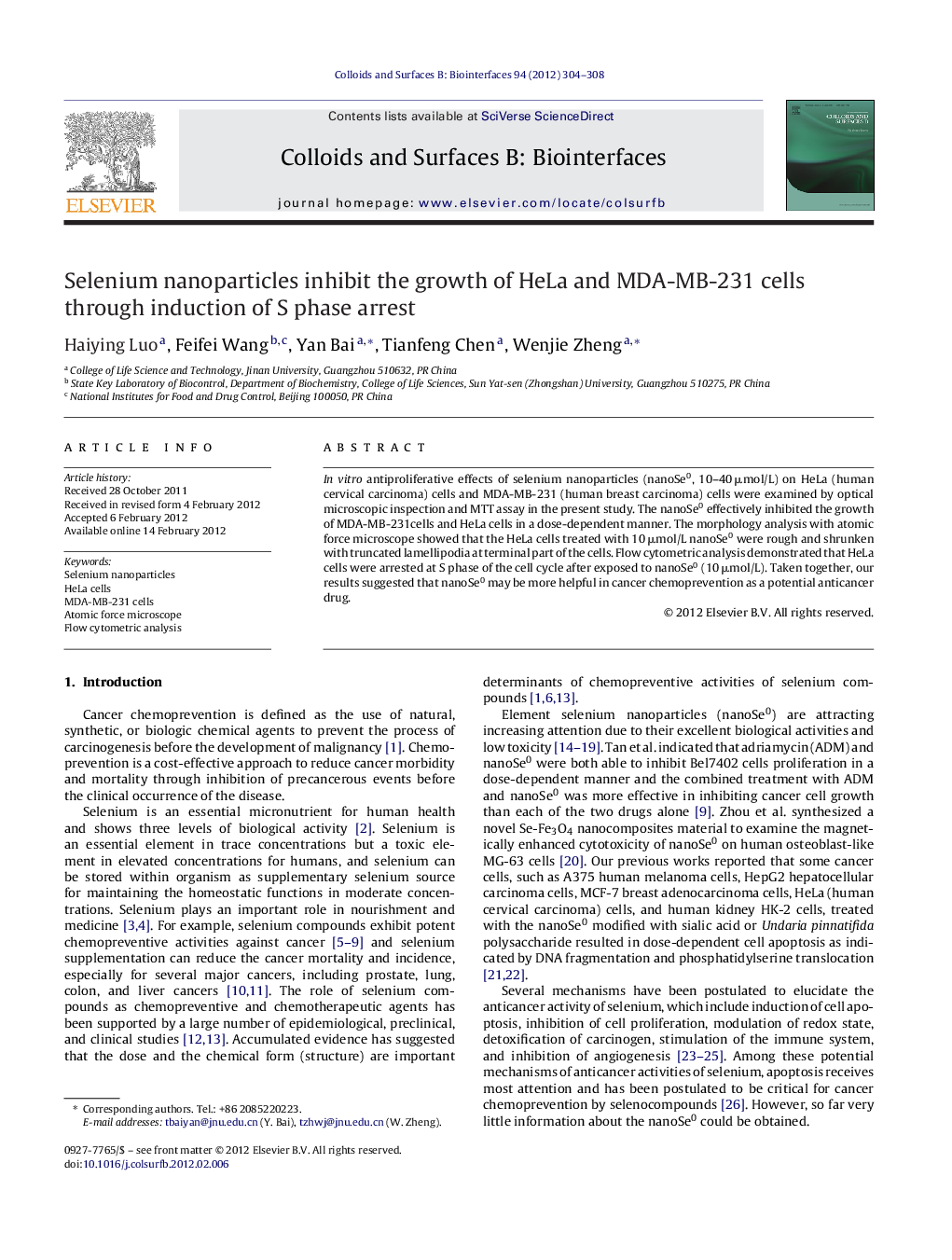| Article ID | Journal | Published Year | Pages | File Type |
|---|---|---|---|---|
| 600867 | Colloids and Surfaces B: Biointerfaces | 2012 | 5 Pages |
In vitro antiproliferative effects of selenium nanoparticles (nanoSe0, 10–40 μmol/L) on HeLa (human cervical carcinoma) cells and MDA-MB-231 (human breast carcinoma) cells were examined by optical microscopic inspection and MTT assay in the present study. The nanoSe0 effectively inhibited the growth of MDA-MB-231cells and HeLa cells in a dose-dependent manner. The morphology analysis with atomic force microscope showed that the HeLa cells treated with 10 μmol/L nanoSe0 were rough and shrunken with truncated lamellipodia at terminal part of the cells. Flow cytometric analysis demonstrated that HeLa cells were arrested at S phase of the cell cycle after exposed to nanoSe0 (10 μmol/L). Taken together, our results suggested that nanoSe0 may be more helpful in cancer chemoprevention as a potential anticancer drug.
Graphical abstractFigure optionsDownload full-size imageDownload as PowerPoint slideHighlights► Antiproliferative effects of Se nanoparticles on cancer cells were examined in vitro. ► Se nanoparticles were able to kill the HeLa and MDA-MB-231 cells. ► Se nanoparticles inhibited the growth of HeLa cells via induction of S phase arrest. ► Se nanoparticles may be as a cancer chemopreventive and chemotherapeutic agent.
